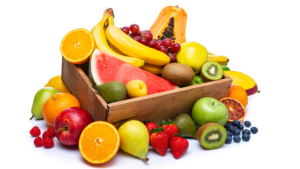There is a sharp spike in colon cancer cases, especially among youngsters. The second leading cause of cancer-related deaths, colon cancer, was predominantly found in older individuals (aged 50 and above). However, a recent study found that people born in 1990 have twice the risk of developing colon cancer, compared to those born in 1950. In 2020, over 1.9 million new cases of colorectal cancer were recorded, and 930,000 people died globally. These numbers are predicted to escalate to 3.2 million new cases per year (an increase of 63%) and 1.6 million deaths per year (an increase of 73%) by 2040, according to the World Health Organization (WHO). While genetics and family history play a role, there are still several controllable risk factors that can drastically reduce the risk of colon cancer. Here are 5 controllable factors that influence colon cancer, and steps to cut your risk.
Being overweight or obese
(Pic courtesy: iStock)
Excess body weight is not an aesthetic problem anymore. It can increase your risk of chronic illnesses, including colon cancer. Overweight is defined as having a BMI of 25-29.9. Obesity is defined as having a BMI of 30 or more. Excess body fat leads to inflammation in the body. It also leads to cell and blood vessel growth, and affects cells' ability to live longer than they normally would.
All these contribute to colorectal cancer. If you have excess body weight (overweight or obesity), your risk of developing and dying from colorectal cancer is higher, says the American Cancer Society.
What to do about it? Lose the excess weight by adjusting some of your lifestyle factors.
Poor diet choicesEverything you consume has an impact on your health. If your dietary choices are poor, it puts you at a higher risk of cancer. Studies have shown that a diet high in red meats (beef, pork, lamb, or liver) and processed meats (hot dogs and some lunch meats) raises your colorectal cancer risk. Long-term use of these diets can put you at serious risk. It is also important to understand that how you prepare your food also has an impact. For instance, cooking meats at extreme temperatures, such as frying, broiling, or grillin,g is also linked with cancer risk.
How to reduce this risk? The answer is simple. Eat a nutritious and well-balanced diet that is rich in vegetables, fruits, leafy greens, and whole grains. Limit or avoid red and processed meats, also keep sugary and fizzy drinks at bay.
Sedentary lifestyleYes, that’s right. Physical inactivity is another major risk factor. If you have a sedentary lifestyle, you are at a higher risk of developing colon cancer. Studies have shown that regular exercise can reduce the risk of colon cancer. Up to 50% of colorectal cancer cases could be prevented by healthy lifestyle choices, including regular physical activity, according to the WHO. A recent NIH study found that daily physical activity, even at light intensities, can significantly lower the incidence of 13 cancer types, including breast and colorectal cancer.
Aim for at least 150 minutes of moderate aerobic activity in a week. This could be simple activities such as brisk walking or cycling. Even small changes, like taking stairs instead of elevators, can make a huge difference.
SmokingThe best way to cut your risk of colon cancer is to say goodbye to tobacco and all other tobacco products. Tobacco use accounts for 25% of all cancer deaths globally, according to the WHO. It increases the risk of all types of cancer, including colon cancer. According to the American Cancer Society, long-term tobacco consumption is linked with a higher risk of colorectal cancer and related death compared to those who don't smoke.
World Obesity Day 2024: Expert Dr V Mohan explains myths, facts and everything you need to know about obesity
The remedy? Quit smoking. Resources like nicotine replacement therapies, counseling, and support groups can help you.
Alcohol consumptionAlcohol is a toxic, psychoactive, and dependence-producing substance classified as a Group 1 carcinogen by the International Agency for Research on Cancer decades ago. Consumption of alcohol is linked to at least seven types of cancer, including mouth, throat, esophagus, liver, breast, and bowel cancers.
To mitigate this risk, quit drinking alcohol. All types of alcoholic beverages, including beer, wine, and spirits, are linked to cancer. For people with heavy drinking patterns, the risk is up to 30 times higher. Quit drinking today. Start by seeking professional help if required.





 SA20 Teams Given Six Retention Options Ahead of Season 4 Auction
SA20 Teams Given Six Retention Options Ahead of Season 4 Auction
 Gavaskar Calls for Kuldeep Yadav's Inclusion in Second Test Amid Bumrah Fitness Concerns
Gavaskar Calls for Kuldeep Yadav's Inclusion in Second Test Amid Bumrah Fitness Concerns
 Former Selector Blasts India's Fielding Errors After Test Defeat to England
Former Selector Blasts India's Fielding Errors After Test Defeat to England
 Rishabh Pant is 'Reinventing' Cricket, Says Greg Chappell, Following Heroic Test Display
Rishabh Pant is 'Reinventing' Cricket, Says Greg Chappell, Following Heroic Test Display
 5 Daily Practices That Radiate Confidence
5 Daily Practices That Radiate Confidence
 Test Your Focus: Spot the Hidden Word in This Optical Illusion Challenge
Test Your Focus: Spot the Hidden Word in This Optical Illusion Challenge
 Messi, 38, Recreates "Ankara Messi" Magic with Stunning Solo Goal for Inter Miami
Messi, 38, Recreates "Ankara Messi" Magic with Stunning Solo Goal for Inter Miami
 Expert Dismisses Claim That Eating Fruit on Empty Stomach Raises Diabetes Risk
Expert Dismisses Claim That Eating Fruit on Empty Stomach Raises Diabetes Risk
 Nine-Year-Old Indian Chess Prodigy Holds Magnus Carlsen to Draw in Online Tournament
Nine-Year-Old Indian Chess Prodigy Holds Magnus Carlsen to Draw in Online Tournament
 Mirabai Chanu Reveals Relentless Demands of Weightlifting: Training, Weight Control Consume Mind Even During Family Time
Mirabai Chanu Reveals Relentless Demands of Weightlifting: Training, Weight Control Consume Mind Even During Family Time